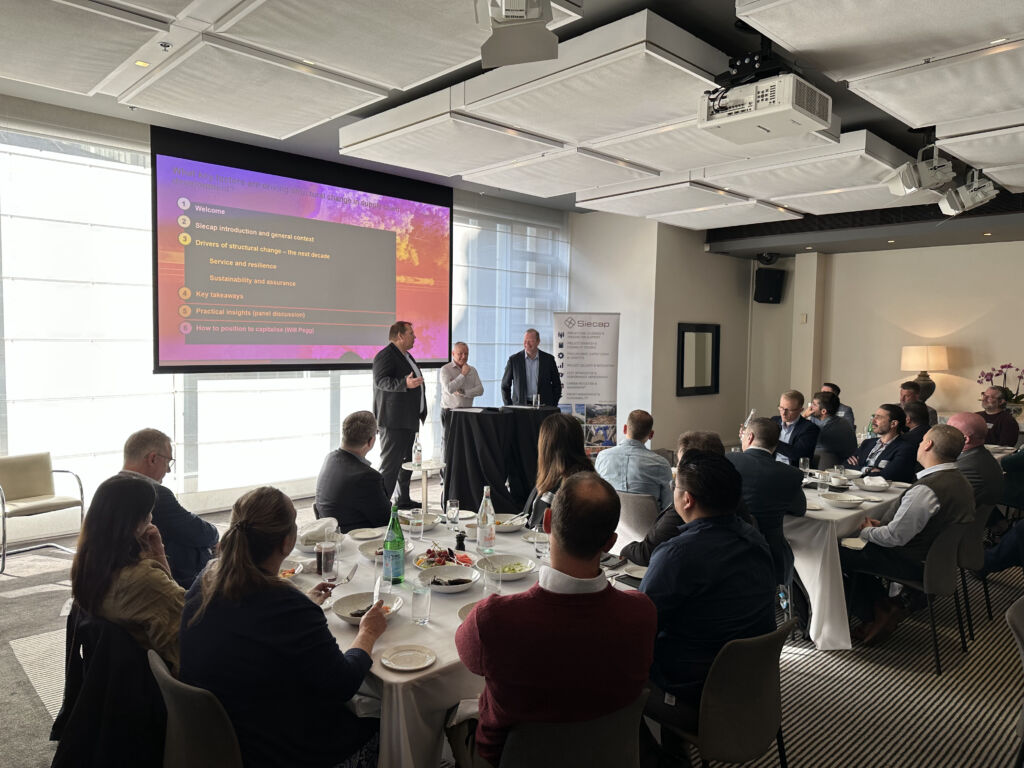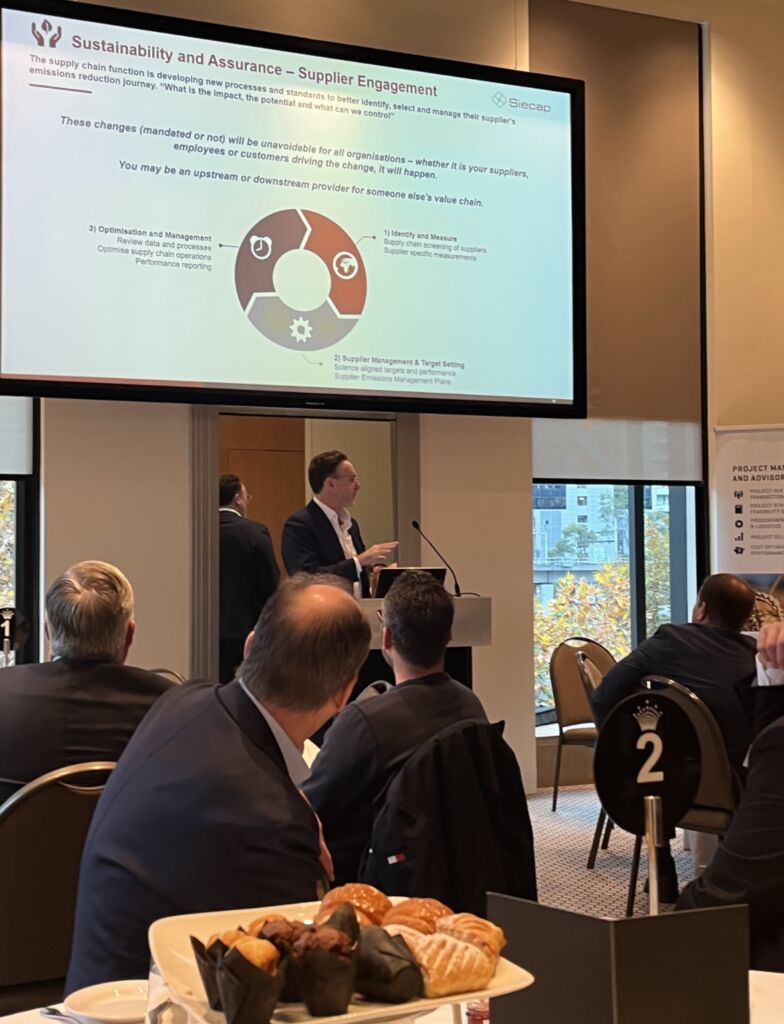
Another iteration of the Siecap breakfast seminar series has just wrapped up. Three sold-out events in Brisbane, Sydney, and Melbourne gave nearly 200 leaders from dozens of industries the opportunity to hear from our experts on the topic The Supply Chain of the Future starts Now, covering key supply chain trends and what factors (including ESG) are driving structural reform across supply chains.
Beginning in Brisbane and moving onto events in Sydney and Melbourne, the events brought together executives from all across the wide spectrum of industries present in Australia, including Officeworks, Chobani, British Aerospace, Origin Energy, Santos, Penguin Random House, Woolworths, Ampol, Google, and more.
The evolution of supply chains in the wake of pandemic is a huge topic, and we were fortunate to be joined by some of the leading experts in the field to discuss how supply chains will grow and change for the many industries in attendance, and how to be flexible and open to those changes.
The first and second seminars of the event featured members of Siecap’s consultancy team discussing emerging post-pandemic trends in supply chain and the major drivers shaping structural reform. Siecap’s CEO David Irvine presented the first seminar, sharing his extensive experience in advising leading brands and organisations across Australia and the world on the ways that supply chains are changing.
His presentation focused on two main topics:
- Service & Resilience: The world’s collective failure to plan for major global disruption events caused increased public awareness of supply chain processes, causing massive changes in the ways that customers are Serviced. Developing Resilient models that can withstand future disruptions is now at the forefront of how supply chains are evolving.
- Sustainability & Assurance: The rising prevalence of Environmental Social Governance (ESG) needs have caused a shift in focus away from solely profit and towards new sustainability standards in the supply chain. Governance and reporting requirements from governing bodies covering Greenhouse Gas (GHG) reduction, the reporting of Scope 1, 2 and 3 Carbon Emissions, and the Modern Slavery Act have changed the ways that supply chain professionals need to operate.
The following seminar featured a panel discussion among Siecap specialists in the Industrial, Manufacturing, CPG and Retail industries on what leading organisations are doing to be resilient, to manage risk, to meet sustainability and assurance requirements, and to remain relevant for their customers.
The event closed out with a talk from Synthesis Group’s William Pegg on what you can do to lead your internal function, covering topics such as being seen internally as a provider of a tactical service how to develop procurement and supply chain teams so that they can be commercially focused, highly sought after by the business and engaged early for the value they bring.
David Irvine, Siecap CEO, noted that all the topics covered in this seminar series are driving rapid and significant changes in supply chain and logistics, saying “The post-pandemic era is seeing an unprecedented urgency for sovereign nations and organisations to reshape how they develop and manage their supply chains.”

